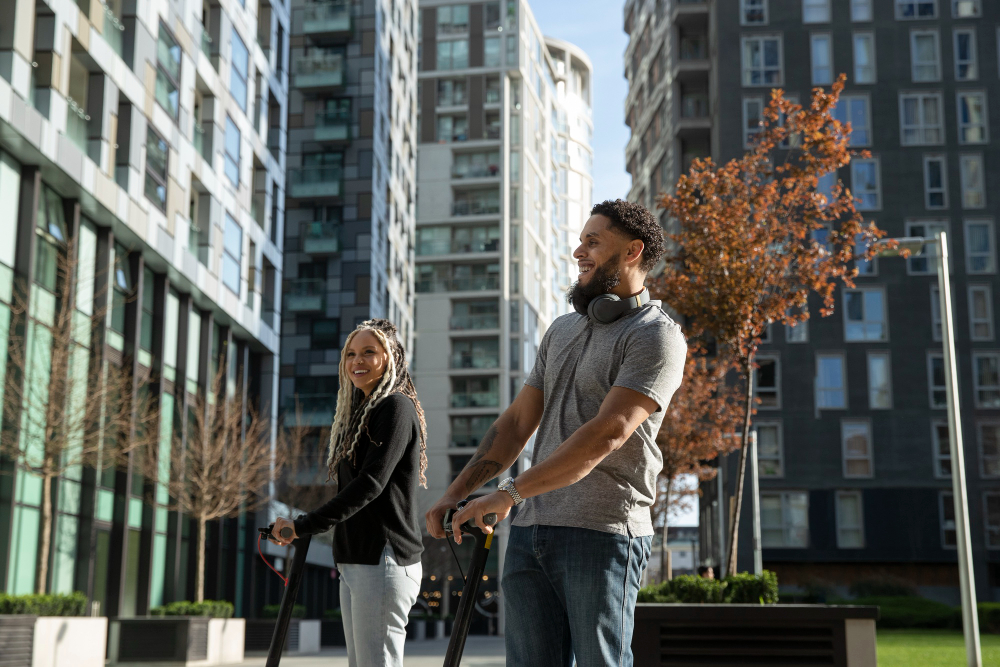

Moving to a new apartment can feel isolating, especially when you're surrounded by unfamiliar faces. Whether you've just settled into one of the many apartments in Gainesville, FL, or you've been living in your current place for months without really connecting with those around you, building relationships with neighbors can transform your living experience from simply existing in a space to truly belonging in a community.
Strong neighborhood connections offer more than just friendly waves in the hallway. They create a support network that can help during emergencies, provide opportunities for shared resources, and foster a sense of security and belonging. Research shows that people with strong community ties report higher levels of happiness and life satisfaction.
The good news? Building these connections doesn't require grand gestures or extensive planning. Small, consistent efforts can gradually weave you into the fabric of your neighborhood community.
The foundation of any community begins with knowing who lives around you. Take the initiative to introduce yourself to immediate neighbors when you see them in common areas, checking mail, or coming and going from their apartments.
Keep these initial interactions brief and friendly. A simple "Hi, I'm [name], I live in apartment [number]" works perfectly. Don't feel pressured to have lengthy conversations right away—many meaningful neighborhood friendships start with these small acknowledgments.
Consider timing your introductions strategically. Morning coffee runs, evening dog walks, or weekend trips to the mailbox often provide natural opportunities for casual encounters. Pay attention to when your neighbors tend to be around and make yourself available during these times.
Once you've established basic introductions, look for ways to create more meaningful interactions. Organize small gatherings that bring people together without requiring major commitments from participants.
Host a Casual Get-Together
Start small with a coffee morning, happy hour, or potluck dinner. Send simple invitations to nearby apartments, keeping the tone casual and low-pressure. Many people appreciate having social opportunities but may not take the initiative to organize them.
Establish Regular Activities
Consider starting recurring activities like morning walks, weekend farmers market trips, or book clubs. Regular activities help build routine connections and give neighbors something to look forward to together.
Celebrate Seasonal Events
Organize holiday celebrations, summer barbecues, or seasonal decorating parties. These events provide natural conversation starters and help create shared memories within your apartment community.
Most apartment complexes have common areas that remain underutilized. Transform these spaces into community hubs by spending time there yourself and encouraging others to do the same.
Set up in the courtyard with a book and a cup of coffee. Bring your laptop to the community room for a change of scenery. Use the fitness center during popular hours. Your presence in these spaces makes them feel more welcoming and increases the likelihood of spontaneous interactions with neighbors.
If your building has a community board, use it to post friendly messages, organize activities, or share useful information about local events and services.
Building community often centers around mutual support. Look for opportunities to offer assistance, and don't hesitate to ask for help when you need it.
Small Acts of Service
Offer to collect packages for traveling neighbors, share tools or kitchen equipment, or help with small tasks like moving furniture. These gestures create bonds and establish a culture of cooperation.
Share Resources and Information
Create informal networks for sharing information about local services, recommending contractors, or alerting each other about community events. Consider starting a group chat or email list for neighbors who want to stay connected.
Emergency Preparedness
Organize emergency preparedness discussions or create contact lists for situations when neighbors might need to reach each other quickly. Having these systems in place builds trust and demonstrates community care.
Successful neighborhood communities thrive on mutual respect and understanding of personal boundaries. Not everyone will want to participate in every activity, and that's perfectly acceptable.
Pay attention to social cues and respect when neighbors prefer privacy or limited interaction. Some people prefer casual greetings while others enjoy deeper conversations. Allow relationships to develop naturally without forcing connections.
Embrace the diversity within your community. Different backgrounds, ages, and lifestyles can enrich neighborhood relationships when approached with openness and curiosity rather than judgment.
Modern technology offers tools that can enhance community building when used appropriately. Social media groups, messaging apps, and neighborhood platforms can facilitate communication and organization.
Create private groups for your building or immediate area where neighbors can share information, coordinate activities, or simply stay in touch. Keep these platforms focused on community building rather than complaint forums.
Consider using apps specifically designed for neighborhood connections, but remember that digital tools should supplement, not replace, face-to-face interactions.
Building community requires ongoing effort and patience. Relationships develop slowly, and not every initiative will succeed immediately. Stay consistent with your efforts and remain open to evolving dynamics within your neighborhood.
Keep activities flexible and responsive to what your community actually wants. If formal events don't work well, focus on casual interactions. If scheduled activities prove difficult to coordinate, emphasize spontaneous connections.
Remember that community building is an investment in your own quality of life as much as others'. The effort you put into creating connections will ultimately enhance your living experience and create a more supportive environment for everyone.
Strong neighborhood communities don't happen overnight, but they begin with individuals willing to take the first step. Start with one small action—introduce yourself to a neighbor you haven't met, spend time in a common area, or organize a simple gathering.
The connections you build today can transform your living experience and create lasting relationships that extend far beyond your time in any particular apartment. Every thriving community started with someone deciding to reach out and connect with those around them.
If you're looking for apartments in Gainesville, FL, contact The Mayfair Apartments today to schedule a personal tour and discover a community where neighbor connections can flourish.